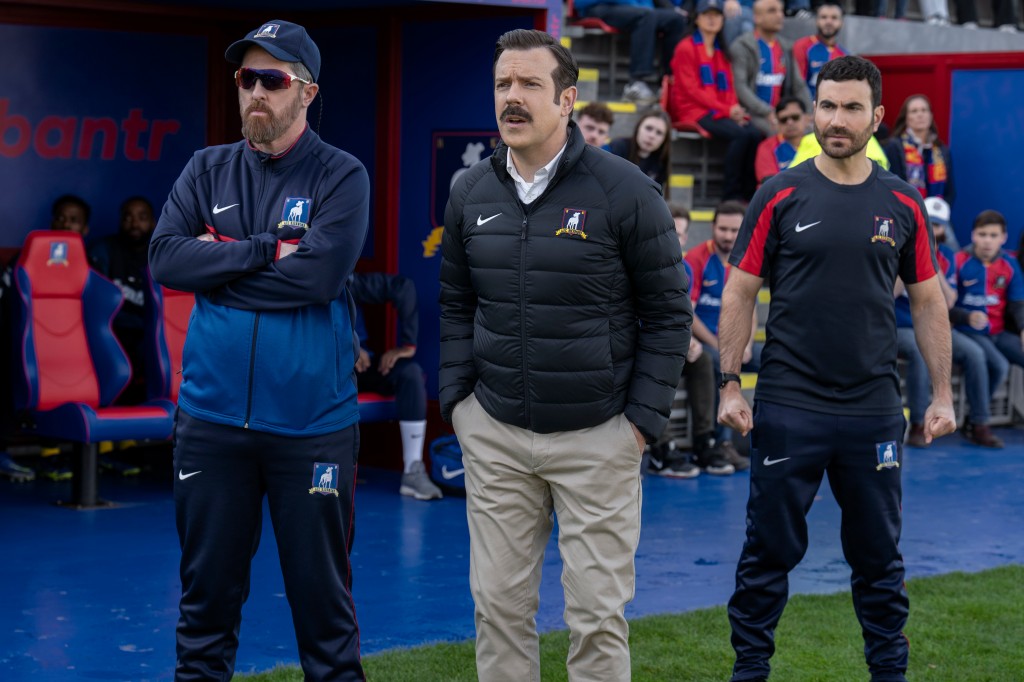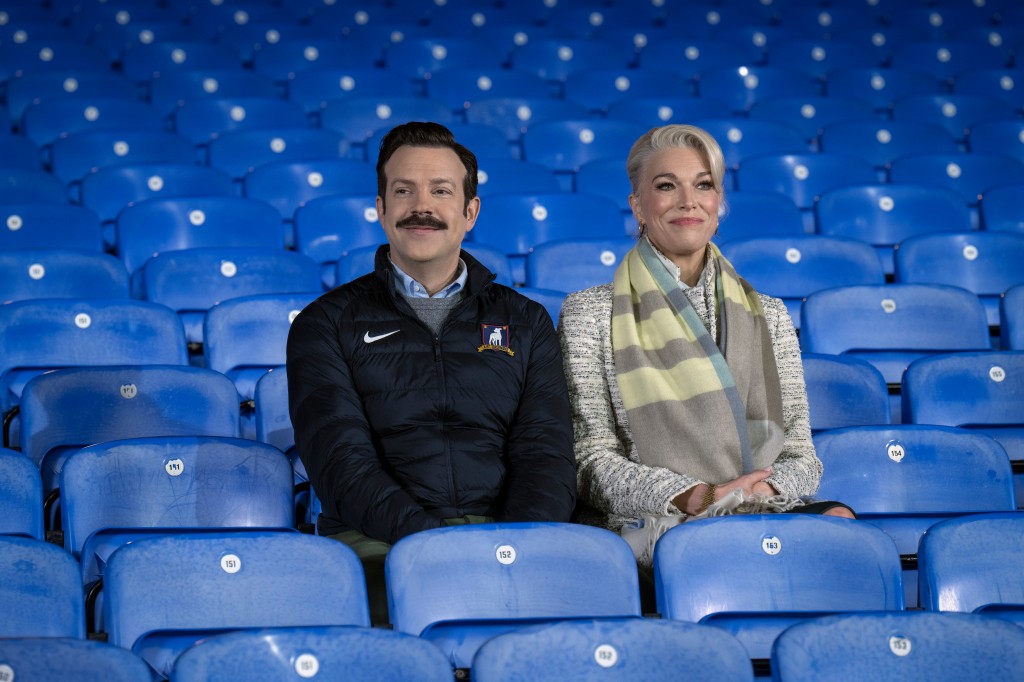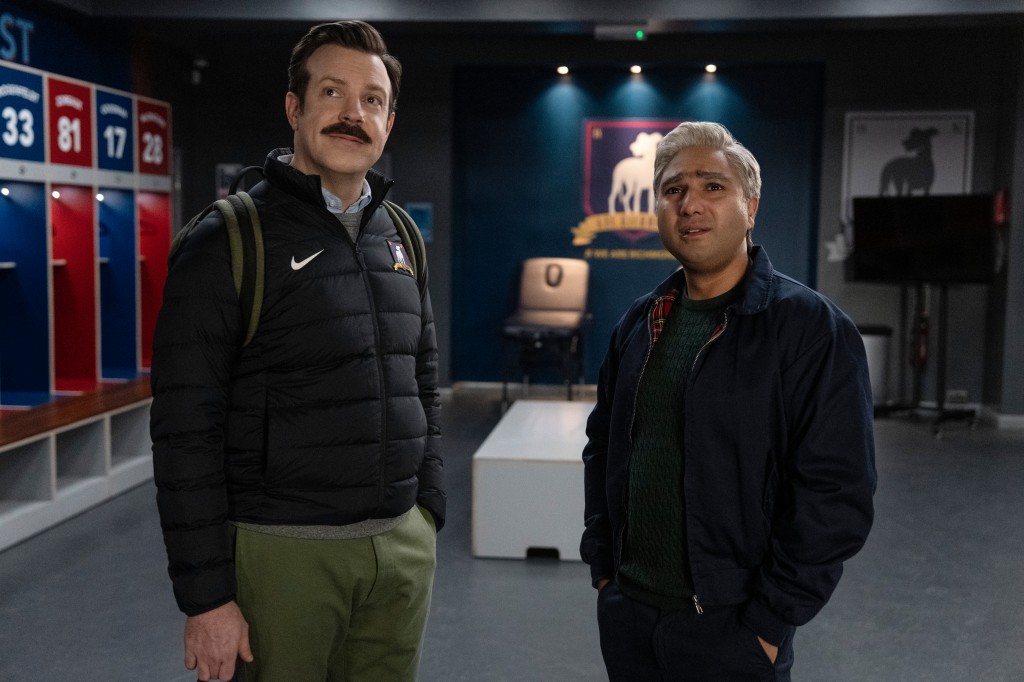Ted Lasso is as much a sports hero as Rocky Balboa
AFC Richmond might not have won the Premier League title in the season finale of “Ted Lasso,” but the show still proved itself a true winner.
Ted Lasso’s cultural legacy will be as profound as other fictional sports heroes like Roy Hobbs and Rocky Balboa.
The sunny but complex character, ably played by Jason Sudeikis, took AFC Richmond to a remarkable second place finish, but it was more than a cliché underdog story arc.
Lasso — a Midwesterner with a push broom mustache and folksy wisdom — pulled off a more improbable feat: He made every flawed character in the AFC Richmond universe a better human.
He softened their edges, turned their confidence deficits into surpluses, opened them up to the idea of change and made them — and us — believe.
So much so, I often wondered if watching the show could be scientifically linked to increased serotonin production.
The Apple TV+ hit taught us the art of forgiveness. At the end, good guy-turned-heel Nate is repentant and humble as he’s welcomed back into his old club.
In an era where buzzy TV shows are full of dark, unlikable characters, “Lasso” showed that we’re all filled with cracks and worthy of redemption.
The Ted character is a human epoxy, seeping into even the most hard-to reach-crevices — a metaphor given tangible form in the finale when Nate pastes the “Believe” sign back together.
With an arsenal of homemade biscuits, little green army men and unrelenting positivity and resilience, the coach eventually wills everyone his way — remaking the collective mood in the locker room and front office.
Nice guys do finish on top.

Sure, there were red cards along the journey.
Lasso’s personality could be cloying, but that was balanced out by his demons.
The show itself wasn’t perfect.

The third season has been rightly criticized for meandering plotlines and unrealistic twists.
The day of the finale, the Guardian published a piece with the headline “Good riddance, Ted Lasso: how the ‘nice’ comedy became utterly dreadful television.”
It was a searing critique that laid out more grievances — “rubbish jokes,” unrealistic characters — than a Festivus celebration.

And even my own colleague Johnny Oleksinski said the good guy coach had overstayed his welcome after the first season, which was a welcome beacon of positivity in the early days of the pandemic.
Admittedly, the third and final season was a turbulent flight. But the creators landed the plane superbly.
Set to Cat Steven’s “Father and Son,” the ending montage delivers the moving moments that made the first season great.
Ted finally confronts his childhood grief and finds his way home. Rebecca’s anger diffuses as the significance of both her random Amsterdam liaison and motherhood prophecy come into focus. Beard gives into love, and Colin gets his kiss on the pitch. Roy Kent lands the top job.

As for the love triangle between Jamie Tartt, Keeley and Roy, who knows? But the onetime WAG emerges as a force of her own — her power not derived from whichever footballer she’s schtupping.
Despite being periodically guilty of overdosing on treacle, the series put us in touch with our common humanity. Lassoland was often a more hospitable place than real sports world, which is rankled by division and absurdity these days.
As much as the Richmond coach wanted everyone to “be a goldfish,” it will be impossible to forget how good he made us feel — especially when we needed it most.
Read the full article Here


